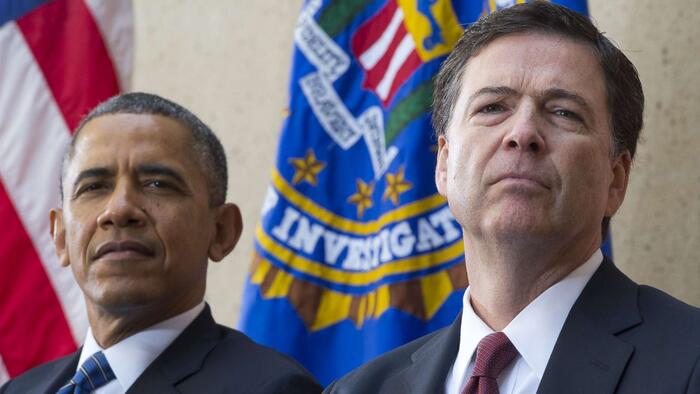In a significant development regarding the FBI’s activities during Donald Trump’s 2016 presidential campaign, a whistleblower has provided the House Judiciary Committee with claims that the Obama-era FBI initiated a covert operation targeting Trump almost immediately after he announced his candidacy in 2015. The operation, which preceded the well-known Crossfire Hurricane investigation aimed at uncovering possible collusion with Russia, was reportedly authorized by then-FBI Director James B. Comey. In this clandestine effort, the whistleblower, who is an FBI agent, asserts that Comey dispatched two female undercover agents to integrate themselves into the upper echelons of Trump’s campaign, with the intention of acting as “honeypots.” This development suggests a different priority for the agency’s actions, aiming at criminal investigation rather than purely counterintelligence.
According to the information relayed to the House Judiciary Committee, the early investigation was not anchored to any specific accusations or crimes but rather served as a fishing expedition to uncover potential wrongdoing by Trump or individuals within his campaign. The whistleblower’s account raises serious concerns about the legality and ethical implications of such operations, suggesting that Comey initiated these extraordinary measures without any established rationale or legal foundation. Former FBI Assistant Director Chris Swecher criticized the operation as a grave violation of protocols, emphasizing that any infiltration of a presidential campaign would necessitate clear justification and oversight, primarily from the Attorney General’s office.
Unlike the later Crossfire Hurricane investigation—which endeavored to explore connections between Trump’s campaign and Russian interference—the preliminary operation described by the whistleblower lacked any formal case file in the FBI’s reporting systems, suggesting a significant deviation from standard investigative procedures. The agents reportedly focused on key campaign figures, including George Papadopoulos, who became a central character in the Trump-Russia narrative after his guilty plea for making false statements to the FBI regarding his interactions with Russian contacts. The allegations indicate that the investigation appeared politically motivated rather than grounded in concrete evidence of wrongdoing, further complicating the already contentious discourse around Trump’s election and the subsequent inquiries into its legitimacy.
The whistleblower notes a particularly unsettling aspect of the operation’s termination. Allegedly, the FBI ceased the secret project after a journalist obtained a photograph of one of the undercover agents, threatening to make the information public. To mitigate potential fallout from the impending disclosure, the FBI’s press office portrayed the agent as an “informant,” suggesting her life could be jeopardized if her identity were revealed. This response raises questions not only about the agency’s practices but also about the degree to which political considerations influenced their actions during a highly polarized election cycle.
Additional details suggest that measures were taken by the FBI to protect the identities of those involved in the operation. For instance, one undercover agent was reportedly transferred to the CIA to extricate her from scrutiny, while another FBI employee associated with the investigation received a promotion following the episode. These actions have prompted further inquiry into the culture and decision-making processes within the FBI at the time, particularly concerning how far the bureau was willing to go in pursuing its objectives in the politically charged atmosphere of the 2016 campaign.
James Comey, who faced significant backlash after being dismissed by Trump in 2017 amid continued controversy surrounding the Russia probe, has not yet made any public comments regarding these latest allegations from the whistleblower. The implications of this revelation could reverberate through both legal and political domains as it calls into question the FBI’s adherence to established protocols and the motivations behind its investigative decisions during a period of heightened national scrutiny and electoral tension. The emerging narrative around the FBI’s actions during the election raises critical discourse regarding the intersection of law enforcement, political dynamics, and democratic processes in the United States.

